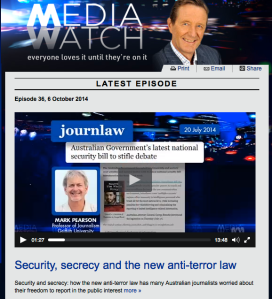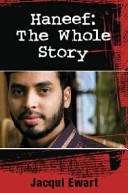By MARK PEARSON
[Research assistance from media freedom intern Jasmine Lincoln]
Just as the Australian Government pushes for tougher obligations on telecommunications and Internet service providers to retain data, the latest figures show tens of thousands of government requests for citizens’ data in recent months.
Telstra has reported almost 85,000 government requests for customer data in the 2013-2014 financial year, while the transparency reports of international social media and search engine platforms Facebook, Twitter, Google and Yahoo show thousands more.
Telstra also states that it “acted upon” those requests and does not detail any it refused.
Under Chapter 5 of the Telecommunications (Interception and Access) Act 1979 (Cth), requests for data from state and federal government agencies do not require a warrant.
Importantly, the Telstra figures do not include requests from national security agencies because the Act prohibits the reporting of such requests.
According to the Telstra report, the overwhelming majority of the government requests (75,448) were for “customer information, carriage service records and pre-warrant checks”.
“Customer information refers to details that appear on a phone bill, such as the customer’s name, address, service number and connection dates. It can include other information we may hold such as a customer’s date of birth and previous address. Carriage service records relate to use of telecommunications services, including call records, SMS records, and internet records. These records include information such as details of a called party, and the date, time and duration of a call.
Internet session information includes the date, time and duration of internet sessions as well as email logs from Bigpond addresses. This does not include URLs. The Government has stated URLs are considered to be content and as such they will only request to access this information under a warrant or other court order.
A pre-warrant check confirms that telecommunication services of interest are still active with Telstra.”
There were 2,701 actual warrants for interception or access to stored communications.
Australian Government requests for data from the major international platforms also amount to thousands per year.
Google reports it produced data to about two thirds of the 1425 Australian Government requests in 2013.

Google’s Transparency Report
Facebook reported it had also complied with about two thirds of the 1149 data requests it received from Australian Government entities last year. Interestingly, it also restricted access to 48 pieces of content under Australian anti-discrimination laws.
Yahoo also rejected about one third of the 1312 Australian Government requests it received last year. Twitter claimed to have received only two Australian Government requests throughout the whole of 2013, indicating either a difference in reporting methodologies or far less government concern over the 140 character micro-blogging medium.
All this indicates there is a substantial amount of data being provided to government agencies both in Australia and internationally.
It raises key questions of media law in the areas of privacy, confidentiality and national security.
It also raises major concerns over the feasibility of whistleblowers and journalists being able to maintain the confidentiality of their communications. This happened recently in the UK, as the Press Gazette reported.
https://twitter.com/Ausflatfish/status/506753740884287489
As I have blogged previously when I suggested the Watergate investigation could never happen in this era, perhaps it is time to acknowledge that it is almost impossible for a journalist to protect a confidential source under this regime of surveillance and data recording and retrieval.
Any journalist seeking to deal with a source on a strictly confidential basis would need a spy or hacker’s level of understanding of telecommunications systems if they wanted to win the confidence of an off-the-record source.
Perhaps only twentieth century techniques might work effectively – the rendezvous in the underground carpark with no digital devices on hand, and the delivery of materials via snail mail or ‘off the back of a truck’.
—-
Also, see this article on the international complexity of rights to your data:
Sources:
Bourke, L. (2 September, 2014). ‘Another internet filter’: IPA slams Brandis copyright proposal. Retrieved from: http://www.smh.com.au/federal-politics/political-news/another-internet-filter-ipa-slams-george-brandis-copyright-proposal-20140902-10barv.html.
Drummond, D. (April, 2010). Greater transparency around government requests. Received from: http://googleblog.blogspot.com.au/2010/04/greater-transparency-around-government.html.
Facebook (2014). Australia requests for data. Received from: https://govtrequests.facebook.com/country/Australia/2013-H2/.
Farrell, P. (2 September, 2014). Data retention: Telstra reports jump in access requests by government. Retrieved from: http://www.theguardian.com/world/2014/sep/02/data-retention-telstra-reports-jump-in-access-requests-by-government.
Google (2014). Australia: Summary of Requests. Received from: https://www.google.com/transparencyreport/userdatarequests/AU/.
Ramli, D. (1 September, 2014). More than 84,000 Telstra customer records accessed by government agencies. Retrieved from: http://www.smh.com.au/business/more-than-84000-telstra-customer-records-accessed-by-government-agencies-20140901-10azjd.html.
Telecommunications (Interception and Access) Act 1979 (Cth) (Aust.).
The Australian (1 September, 2014). Telstra reveals extent of data requests. Retrieved from: http://www.theaustralian.com.au/news/latest-news/telstra-reveals-extent-of-data-requests/story-fn3dxiwe-1227044127129.
Twitter (2014). Australia: Information requests. Received from: https://transparency.twitter.com/country/au.
Yahoo (2014). Australia: government data requests. Received from: https://transparency.yahoo.com/government-data-requests/AU-JUL-DEC-2013.html.
© Mark Pearson 2014
Disclaimer: While I write about media law and ethics, nothing here should be construed as legal advice. I am an academic, not a lawyer. My only advice is that you consult a lawyer before taking any legal risks.












